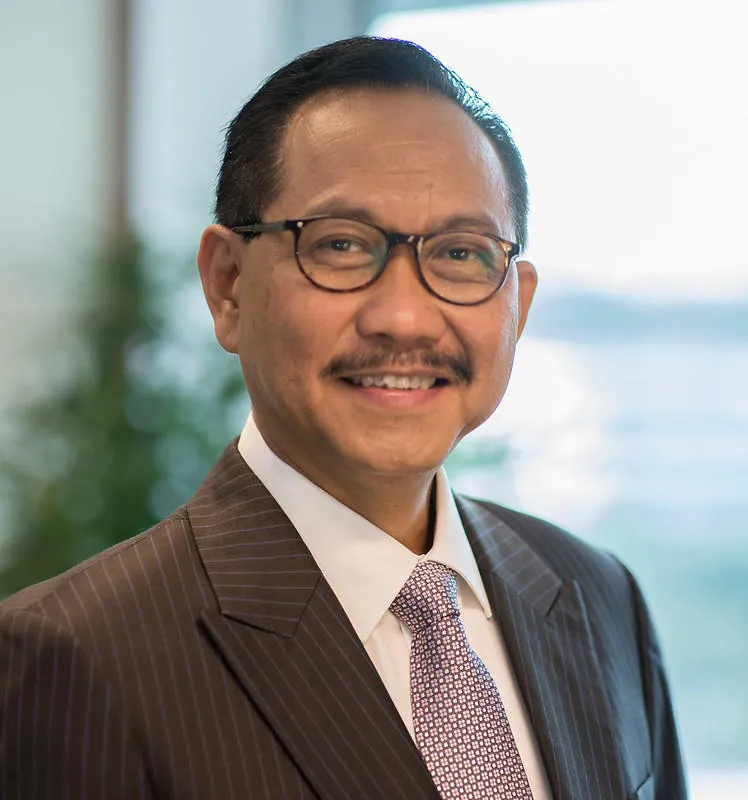
As the world continues its transition toward cleaner, renewable approaches to climate and energy, the ways progress will be planned and paid for are becoming clearer. While some people left COP26 disappointed with the progress made, key frameworks that took shape in Glasgow in the crucial area of climate finance show how talk can be turned into action.
Tangible progress will not come a moment too soon for our region. Many small island states with unique, scattered geography and marine ecosystems—many rising just a few meters above sea level—are in clear, existential peril. Each year, extreme weather throughout Asia and the Pacific causes death, destroys infrastructure, and disrupts economies. In the Philippines, damage from extreme weather and disasters reached the equivalent of $9.3 billion from 2010-2019. Meanwhile, our region now accounts for about half of all global greenhouse gas emissions and is home to 865 of the roughly 1,000 coal-fired energy plants in use around the world.
As Asia and the Pacific’s climate bank, the Asian Development Bank is working to help developing countries assemble three core elements in the effort to mitigate and adapt to climate change: technical solutions that help to green their economies; expertise and capacity to take a “whole-of-economy” approach; and financial resources to transition to more sustainable infrastructure. This holistic view covers everything from expanding climate literacy and training to sharing knowledge and a spirit of innovation to help prepare locally tailored solutions.
So how can countries respond to rising sea levels, frequent disasters, and dangerous pollution? Let’s consider the power sector. Solutions to the challenge of generating enough energy to meet rising demand while tackling climate change will look different for each country. An alternative renewable energy mix—whether wind farms or solar parks—can add to hydropower or geothermal generation that is cleaner and contributes to the energy transition. It all depends on what’s available.
But across countries the focus will be on designing impactful, climate-aligned programs and investments linked to broader national development strategies that move them toward more ambitious targets under the Paris Agreement. To develop those investments, it is critical to first weigh the feasibility of technical solutions to climate change development projects and use the findings to define an appropriate package of loans, grants and guarantees.
Technical assistance is central for each country to reach its climate goals—and remains a key part of how ADB will help. In the power sector, access to technical expertise can help improve understanding of complex issues, build awareness of potential solutions, and support the transfer of new technologies that allow greater access to power while also promoting the clean-energy transition. This is critical in a region where 350 million people have unreliable access to energy and 150 million people have none whatsoever. Capacity development is also critical to help countries formulate approaches to a just transition through vocational training and social development, so new investments do not disrupt income growth or safety nets for the most vulnerable.
We will also work with partners and clients to drive new ideas that protect the environment—and livelihoods. For instance, throughout Asia and the Pacific, vulnerable coastal wetlands are also critical sources of incomes. In Bangladesh, Indonesia, the Philippines, Thailand, and Viet Nam, more than 1.5 million people work in small-scale fisheries. One study estimated that, in the People’s Republic of China and the Philippines alone, investing in climate-resilient coastlines saves an estimated 2,000 lives and $200 billion annually by preventing floods. By avoiding conventional seawalls and instead adopting climate-friendly approaches to contain surges and floods, we also safeguard economies and protect jobs.
A climate bank like ADB can build from its strong balance sheet and high credit rating to pass on competitive lending rates and longer tenors to help finance such large efforts. We can also use multiple financing instruments, including guarantees, to leverage resources and serve as an important conduit for co-financing.
Ultimately, however, our role is distinguished by a pipeline of bankable climate change projects with upfront due diligence, prefeasibility and other preparatory work. Our projects evolve through careful structuring to ensure the economic and financial returns generate income, enhance the welfare of ordinary people, and can even attract commercial financing. ADB has committed to increase our own climate finance allocation to $100 billion cumulatively from 2019 to 2030 and to fully align our operations with the Paris Agreement by 2025.
At COP26, ADB, with our partners, launched several important initiatives for Asia and the Pacific. One, the Energy Transition Mechanism Southeast Asia Partnership—created with Indonesia and the Philippines—will use public-private financing to accelerate the retirement of coal-fired power stations and unlock investments in clean, renewable energy as replacements. Another, the Climate Action Catalyst Fund, will help developing economies join international carbon markets under the Paris Agreement. These initiatives should result in a faster decarbonization of our region and ramp up financing to help our developing member countries meet and exceed their nationally determined contributions.
Frameworks and planning of this nature often fails to command center stage. But each smart initiative—and the thinking and capacity support behind them—shows how the large-scale climate solutions that we now urgently need throughout Asia and the Pacific will take shape as the decade advances. By approaching each challenge holistically, we will reach our goal of a healthier environment together—with healthier economies to match.
Mr. Bambang Susantono is ADB Vice-President for Knowledge Management and Sustainable Development.
v-if="article.gallery" v-html="article.gallery"
(adsbygoogle = window.adsbygoogle || []).push({});